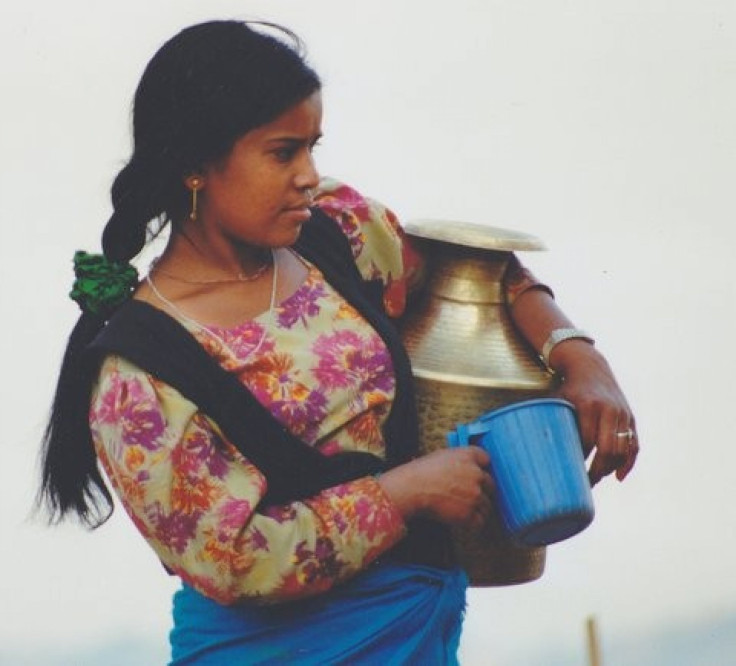Nepal Urged To Revoke Ban On Young Women Migrating To Gulf

A rights group has urged the Nepal government to revoke its recently imposed ban on women under the age of 30 working in the Persian Gulf nations and, instead, improve protective measures to ensure safer migration for domestic workers.
In a statement released Tuesday, the Human Rights Watch (HRW) asked governments in the Gulf also to adopt labor protection and immigration reforms, including ending the discriminatory treatment of domestic workers, to combat abuse of Nepali and other migrant workers.
On August 9, Nepal's cabinet approved a ban on women under the age of 30 from traveling to the Gulf for work to prevent abuse of the Nepali domestic workers. The abuse include long work hours (sometimes up to 20 hours a day), withholding the passports, restrictions on movement, unpaid wages, threats, deprivation of food and sleep and physical or sexual abuse.
"Nepal is right to be concerned about its migrant domestic workers, but imposing a ban on women under 30 from traveling to the Gulf does not solve the problem and discriminates against young women", Nisha Varia, senior women's rights researcher at HRW, was quoted as saying in the statement. "A better strategy would be to crack down on abusive recruitment practices, ensure that women migrate with an enforceable contract in hand, and equip embassies to respond quickly to complaints of abuse."
A U.N. report of last year, analyzing the demographic trends of migration from, to and within Asia Pacific noted that the number of women from Nepal migrating to work abroad was increasing. Migrant statistics of Nepal varies depending on the source due to the lack of proper documentation. Nepal government statistics, as reported by CNN, say about 58,000 Nepalese women are currently working in Saudi Arabia, Kuwait, Bahrain, Qatar, the United Arab Emirates and Oman. But Nepali media reported in March that the Department of Labor estimates showed that about 200,000 Nepali women were working in the Gulf of which only four percent had legal work permits.
This isn't the first time Nepal has imposed restrictions on women migrating to the Gulf countries. The government enforced a ban on women from migrating to the Gulf in 1998 when the case of Kani Sherpa shocked the nation. Sherpa was working as a maid in Kuwait when she was gang-raped and pushed to her death from a balcony. Kuwaiti authorities said she had committed suicide.
Nepali women, however, had continued to travel to the Gulf nations mostly through India to avoid detection. Nepal's employment ministry lifted the ban in 2010.
Though Nepal's Foreign Employment Act of 2007 promises equal opportunity to men and women seeking foreign employment, and the ban was completely revoked in 2010, the "perception of ban" remained resulting in many women continuing to use illegal routes to migrate, a Nepali Times report published in March said.
Nepali emigration figures state that as many as 1,000 migrants pass daily through Tribhuvan International Airport in Kathmandu while many others leave by land through the porous Indian border, HRW said.
The lack of labor laws in the Gulf for domestic workers that guarantee basic rights such as weekly rest day, limits to hours of work, and compensation in case of work-related injury, makes the matters worse, the rights group has said. Restrictive immigration rules make it difficult for the domestic workers to escape from abusive employers.
Instead of a blanket ban on young women that denies them important employment opportunities, the Nepalese government should work with other labor-sending governments to demand stronger protections for migrant workers in the Gulf, the HRW statement said. It urged the government to improve training of migrant workers, to monitor recruitment agencies rigorously, and to ensure migrant women know where to get help if they need it.
© Copyright IBTimes 2024. All rights reserved.












